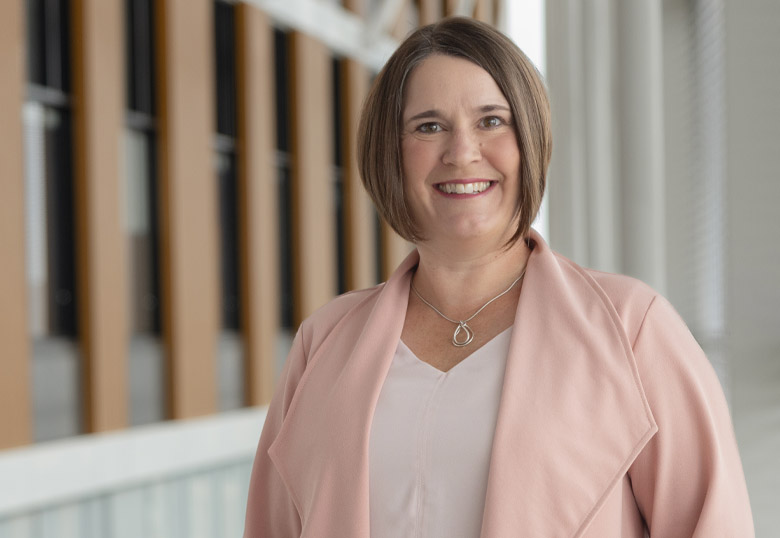With student success as her focus, Dr. Stacey Wetmore (chemistry and biochemistry) provides interactive and immersive mentorship in a supportive and compassionate environment, teaching her students the technical, communication, leadership and collaboration skills they need to become independent scientists in their chosen career paths. Wetmore will be recognized with the University of Lethbridge School of Graduate Studies Graduate Mentorship Award at 2025 Spring Convocation, Ceremony IV, on Friday, May 30, 2:30 p.m., in the Centre for Sport and Wellness gymnasium.

“She has shown that time and time again, she will go above and beyond the call of duty to help everyone in her lab succeed regardless of their educational background, gender or ethnicity,” says award nominator Briana Boychuk, who Wetmore mentored as her supervisor while in the PhD program. “Her dedication to training and her ability to attract top students have contributed greatly to the expansion of the graduate program at ULethbridge.”
Dr. Stacey Wetmore
Dr. Stacey Wetmore has mentored 24 master’s and 13 doctoral students. Her students have co-authored over 125 publications and delivered more than 325 presentations at local, national and international conferences. Under her guidance, her graduate students have won 41 conference awards and attracted more than $2.8 million in scholarships. They have gone on to secure positions in industry research, postdoctoral fellowships, and as university instructors and faculty members.
When they join her lab, Wetmore introduces graduate students to the field of computational chemistry using interactive workshops and manuals developed in her lab. From there, she works to ensure their success by giving them carefully crafted projects aligned with their interests, with distinct learning objectives for large projects broken down into manageable pieces. Using these approaches, her students gain project management skills, learn to think critically, and hone their scientific and grant-writing skills. They also learn to develop hypotheses, run calculations, analyze data, keep accurate records and write reports. Wetmore meets with trainees both individually and in a group setting and hosts a journal club to critique recent articles. Trainees receive extensive feedback on oral and written works and learn how to deliver effective presentations. Senior graduate students get further training in cluster administration and software installation.
At any given time, Wetmore will be mentoring undergraduate students, graduate students and postdoctoral fellows. This mixed composition gives graduate students the chance to be mentors, to be mentored and expand their research portfolio. Wetmore encourages them to attend research, teaching and time management workshops by the School of Graduate Studies, the Teaching Centre, research institutes on campus, and at other universities. These experiences allow students to learn from other experts in the field and to form collaborations between ULethbridge and other research universities. Her students are also motivated to volunteer with organizations like the Graduate Students’ Association, Let’s Talk Science and the student groups Wetmore established after the pandemic to enhance the graduate student experience.
Her lab is an inclusive space. Wetmore recruits diverse team members from her classes and outreach activities and provides flexible schedules to accommodate students’ commitments. She also includes her students in initiatives like Operation Minerva, a program that gives Grade 8 and 9 students from underrepresented groups the chance to shadow science mentors for a day.
Under Wetmore’s guidance and mentorship, graduate students are well-positioned to help solve important challenges facing Canada and the rest of the world.
